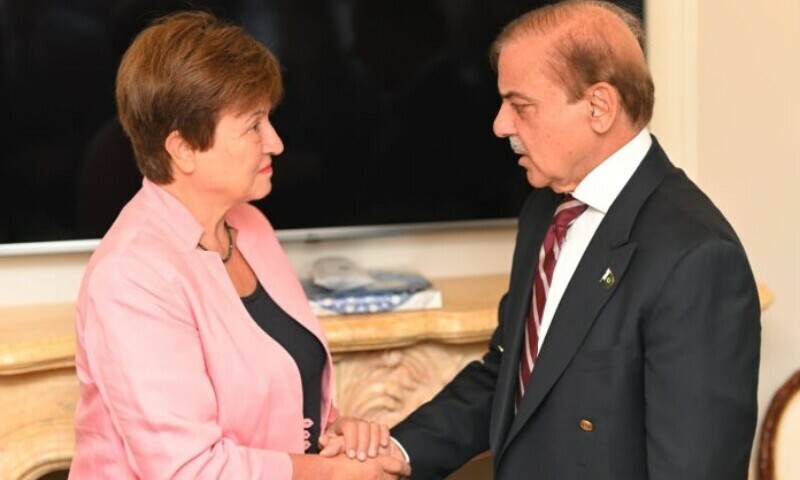As the 10-day staff-level talks between Pakistan and the International Monetary Fund (IMF) ended in a stalemate, the global lender welcomed Prime Minister Shehbaz Sharif’s commitment to implement policies needed to safeguard macroeconomic stability and thanked the authorities for the constructive discussions.
In a statement, Nathan Porter, IMF’s mission chief, noted that considerable progress was made during the talks between the two sides on policy measures to address domestic and external imbalances.
Nathan Porter highlighted that the key priorities include strengthening the fiscal position with permanent revenue measures and reduction in untargeted subsidies, while scaling up social protection to help the most vulnerable and those affected by the floods; allowing the exchange rate to be market determined to gradually eliminate the foreign exchange shortage; and enhancing energy provision by preventing further accumulation of circular debt and ensuring the viability of the energy sector.
Referring to the key priorities, Nathan Porter said that the timely and decisive implementation of these policies, along with resolute financial support from official partners, were critical for Pakistan to successfully regain macroeconomic stability and advance its sustainable development.
The IMF mission chief said that the “virtual discussions” will continue between the two sides in the coming days to finalize the “implementation details” of these policies.
Deadlock persists between Pakistan, IMF over ninth review
Following 10 days of “tough” talks” with the IMF, Pakistan could not reach a staff-level agreement to unlock the $1.18 billion loan tranche, said Secretary of Finance Hamed Sheikh late Thursday night.
The development comes as negotiations, which took place from January 31 to February 9, with the global lender’s mission — who was in Pakistan at the government’s request — and the local authorities concluded in Islamabad.
Finance Minister Ishaq Dar was due to hold a press conference for the much-awaited resumption of the program, however, no official announcement was made by the financial czar.
Meanwhile, in a statement, the finance secretary, without giving further details, said that “an agreement has already been struck with the IMF on prerequisite measures”.
“The negotiations with the IMF have been completed. The IMF has handed over the MEFP [Memorandum of Economic and Financial Policies] document [to Pakistan],” he added.
At the same time, the secretary stressed that the international creditor assured Pakistani authorities of striking a staff-level pact in the coming days and the “agreement for releasing the loan will also be signed soon”.
“All matters between the IMF and Pakistan have been agreed upon,” Sheikh said — noting that the Washington-based lender’s mission has also assessed sources of foreign inflows.
It should be noted that during the policy-level talks, the IMF expressed its reservations over the projections made by the Ministry of Finance over external financing inflows from multilateral, bilateral creditors and in the shape of commercial loans.
He further added that the IMF mission, headed by Nathan Porter, would release a detailed statement later after approval from Washington.
The IMF’s loan is critical for the country’s $350 billion economy as the State Bank of Pakistan (SBP)-held foreign exchange reserves have fallen to $2.91 billion — enough to provide an import cover of 0.58 months.










